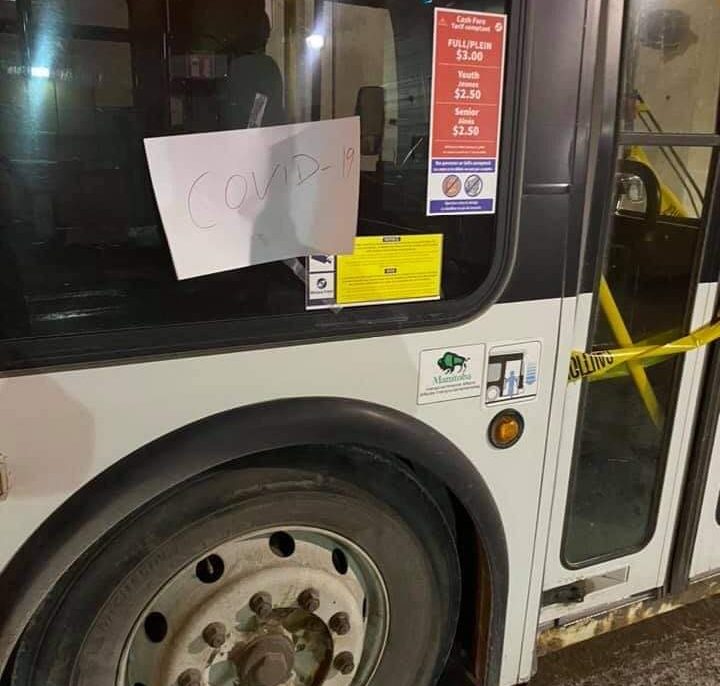A grassroots group of transit advocates says Winnipeg Transit needs to increase its service, despite a city report indicating transit revenues are down and expected to continue in that direction while ridership is down due to the COVID-19 pandemic.
The city is projecting a revenue shortfall of $29.1 million at year-end for transit alone, a $3-million increase from the first quarter’s report.
Derek Koop of Functional Transit Winnipeg told 680 CJOB that while his group understands the financial crunch the city finds itself in, now is not the time to make any further cuts to transit service — rather, the opposite.

“It really is not the time to cut transit, when we’re looking at these financial difficulties,” said Koop.
“We need to look at providing increasing frequency, because riders deserve a frequent, affordable and accessible public transit — accessible so it provides for physical distancing and not having overcrowding.
“Pre-pandemic, we were seeing overcrowding on buses constantly, so that was not sufficient with physical distancing measures in place.”
Koop said he’s heard from many Winnipeggers that they remain concerned about taking the bus during the pandemic and that many are looking for other options.
“It’s still our social responsibility as a city to make sure everyone can access their job, everyone can access the amenities of the city, and transit is able to do that,” he said.
“It’s an economic choice for the city… We have to look at how we move people through our city efficiently, and when people lose faith in our transit system, that really just hurts our city in all those different ways.”
Coun. Scott Gillingham (St. James), the city’s finance chair, said while the city has done well mitigating the impact of the pandemic, transit’s finances will be a continued concern moving forward.
“People have not been riding the bus, understandably, especially over the last few months as people have really been staying home to comply with public health orders,” said Gillingham.
“Nobody knows how long this pandemic is going to go, and how deep it’s going to go, so we don’t know yet when transit ridership levels will return to pre-COVID numbers.”
Gillingham said the good news is that the city has a financial stabilization reserve fund that can be drawn upon to offset transit shortfalls, and that even after a projected draw on that reserve, it’s still expected to have a healthy balance.
An upswing for transit, he said, depends on how long the pandemic lasts, as well as how confident individual riders feel about taking a bus — but it’s unlikely there will be transit layoffs between now and then.
“I think we need to keep in mind transit is a very important service,” he said.
“There are many members of our community that rely on transit as their primary — or for some, their only — means of transportation to commute to and from work, to and from school, or to visit a loved one in the hospital.”
Now is the time for the provincial government to show leadership on public transportation. Help us send this message to the Pallister government today.
Be part of our #KeepMBHealthy campaign and send a letter at https://t.co/n1BflHZ0DR#winnipeg #mbpoli #keepMBhealthy
— Functional Transit Winnipeg (@FTWinnipeg) September 10, 2020
Koop and Functional Transit Winnipeg are looking beyond the city’s borders for help in keeping transit strong, starting a letter-writing campaign to reach out to the province to access up to $65 million in federal funds dedicated to improving transit service during the COVID-19 pandemic.







Comments